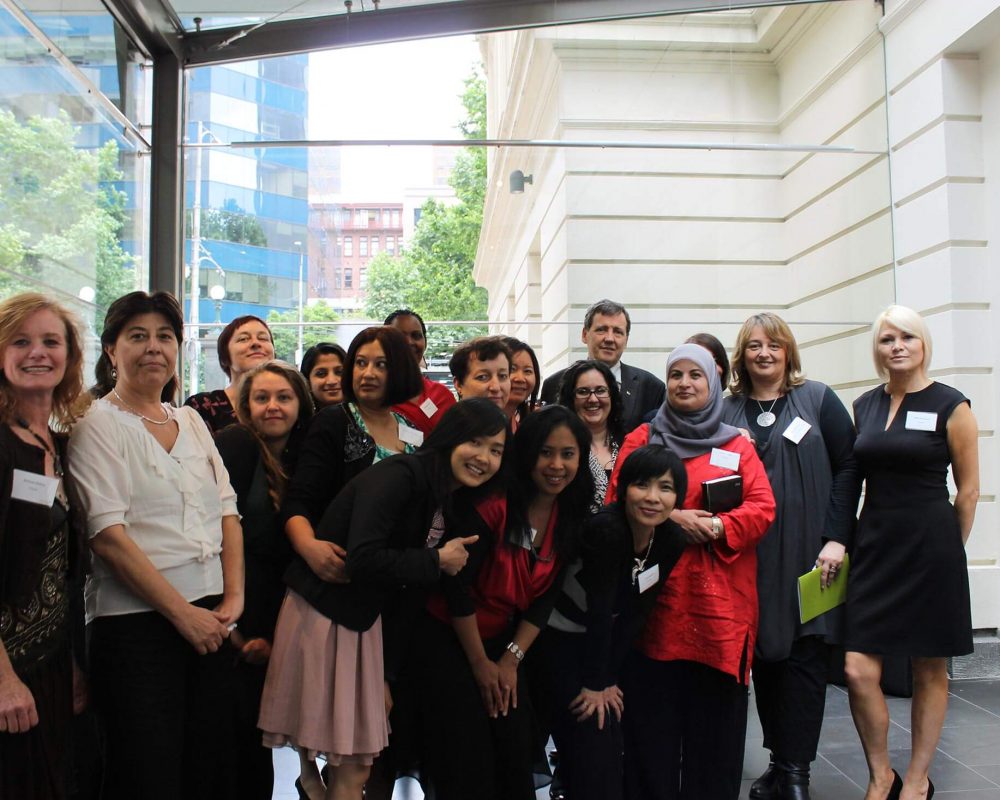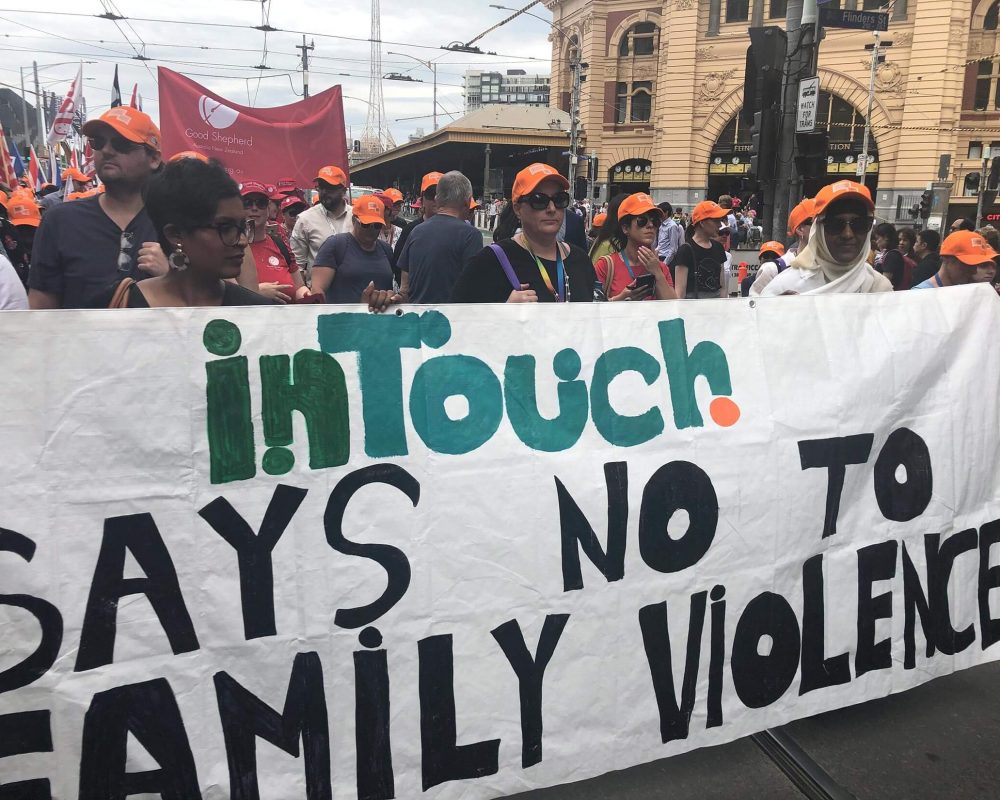History
inTouch Multicultural Centre Against Family Violence has a long history of serving the migrant and refugee community, beginning in 1981.
In June of 1984, the Refuge Ethnic Workers Program (REWP) was formed. The service began with seven part-time multicultural workers, a part time financial officer, a full-time coordinator, and a range of casual workers.The REWP highlighted not only the need for culturally sensitive support for women in refuges, but for those who remained in their homes, or were simply disengaged from family violence services altogether.
inTouch’s story begins in 1981, when CO.AS.IT (the Italian Assistance Association) organised the Migrant Women and Women’s Refuges national seminar.
This event was a historical first – never before had the unique needs of refugee and migrant women and children in family violence-related refuge been discussed as part of a national collaboration. One of the most important conclusions emerging from the seminar was the acknowledgement that refuges needed bilingual and bicultural workers that reflected the cultural and linguistic diversity of the women accessing their services.
In 1994, the Refuge Ethnic Workers Program became the Immigrant Women’s Domestic Violence Services (IWDVS). This change marked an important step for the organisation, as IWDVS’ role became more complicated – taking on the task of supporting clients as well as educating the community about the ways domestic violence, racism and culture impact immigrant women. IWDVS understood that advocacy and lobbying was integral to the process of changing community attitudes and as well as the judicial and law enforcement-related approaches to violence against immigrant women.
The 1990s were a challenging time for a small organisation with such a large brief. During this period, IWDVS focused on partnerships with other domestic violence services, migrant resource centres and ethno-specific organisations. Support was delivered directly at the refuges or via telephone through the information, support and referral service, amounting to nearly 11,000 calls a year. In 1998, to appropriately address the increase in demand, IWDVS transitioned from a loose collective into an organisation with a Board of Management.
By 2002, IWDVS had an in-house, full-time migration agent, recognising the important impact temporary visas have within the family violence space. Shortly after this, IWDVS developed a strategic plan with a vision for all women and children to be in control of their own lives in a society free from violence and discrimination.
In 2005, to mark the organisation’s 21st year, a number of celebrations were held, including a public event with 150 supporters at the Immigration Museum. This year also marked the establishment of a Training, Research and Consultation Unit to help meet the organisation’s strategic aims. This was also the first time in IWDVS’ history that males were employed, engaging with newly-arrived migrant and refugee men.
During this time, IWDVS released its first research report, The Right to be Safe: Immigrant and Refugee Women in Rural Victoria, examining the needs of CALD women in rural areas experiencing family violence. This report led to the development of a strategic rural outreach plan for the organisation, commencing with Shepparton and the Hume region. IWDVS was also selected to participate in the pilot Family Violence Division of the Magistrates Court in Heidelberg.
In 2010, IWDVS embarked on a new era in the life of the organisation, rebranding to inTouch Multicultural Centre Against Family Violence, which coincided with the Australian Government’s development of the National Plan to Reduce Violence Against Women and their Children. This year also marked the successful development of a Vietnamese Men’s Behaviour Change Program.
In 2012, inTouch established its own Community Legal Centre, the first of its kind in Australia. Utilising an innovative, client-centred model, the inTouch Community Legal Centre fulfills the need for specialised, in-house, culturally-appropriate legal support with an existing relationship of trust. It draws on our broader cultural expertise and established relationships with migrant and refugee victim-survivors of family violence, increasing their access to justice and ensuring equity of outcomes.

In 2014, inTouch celebrated our 30th anniversary, and marked another first – in recognition of the devastating impact family violence has on all children, we created a therapeutic book called The Empty Jar. Launched at Melbourne Writers Festival, The Empty Jar is a culturally sensitive resource to assist migrant and refugee children who have experienced family violence.
By 2015, when the Victorian Government established the Royal Commission, inTouch were ready to demonstrate strong leadership and advocacy. We prepared a written submission with 42 recommendations, organised a consultation session with 17 of our clients and presented evidence at public hearings. This evidence was informed by the growth of inTouch’s range of programs and services – working with the victim-survivor through crisis, addressing their legal needs, and supporting them through to recovery. In addition, inTouch also showcased the organisation’s tailored and culturally-sensitive work with men and broader communities.
In 2016, the Royal Commission into Family Violence was released with 227 recommendations, including Recommendation 139 which called on the government to fund inTouch as a specialist family violence service, supporting the sector to respond effectively to the needs of people from refugee and migrant communities who experience family violence.

Today, inTouch is working with approximately 1,650 women annually, undertaking outreach in four courts and other community settings, providing legal services, building the capacity of sector service providers and multicultural organisations, undertaking prevention work, providing research and policy, participating in working groups and steering committees, and providing ongoing programs with perpetrators through Motivation for Change.
We have also established NOOR, a Survivor-Advocate advisory group to provide inTouch with ongoing advice with regards to program development and support systems, and to directly impact government and sector policy.
